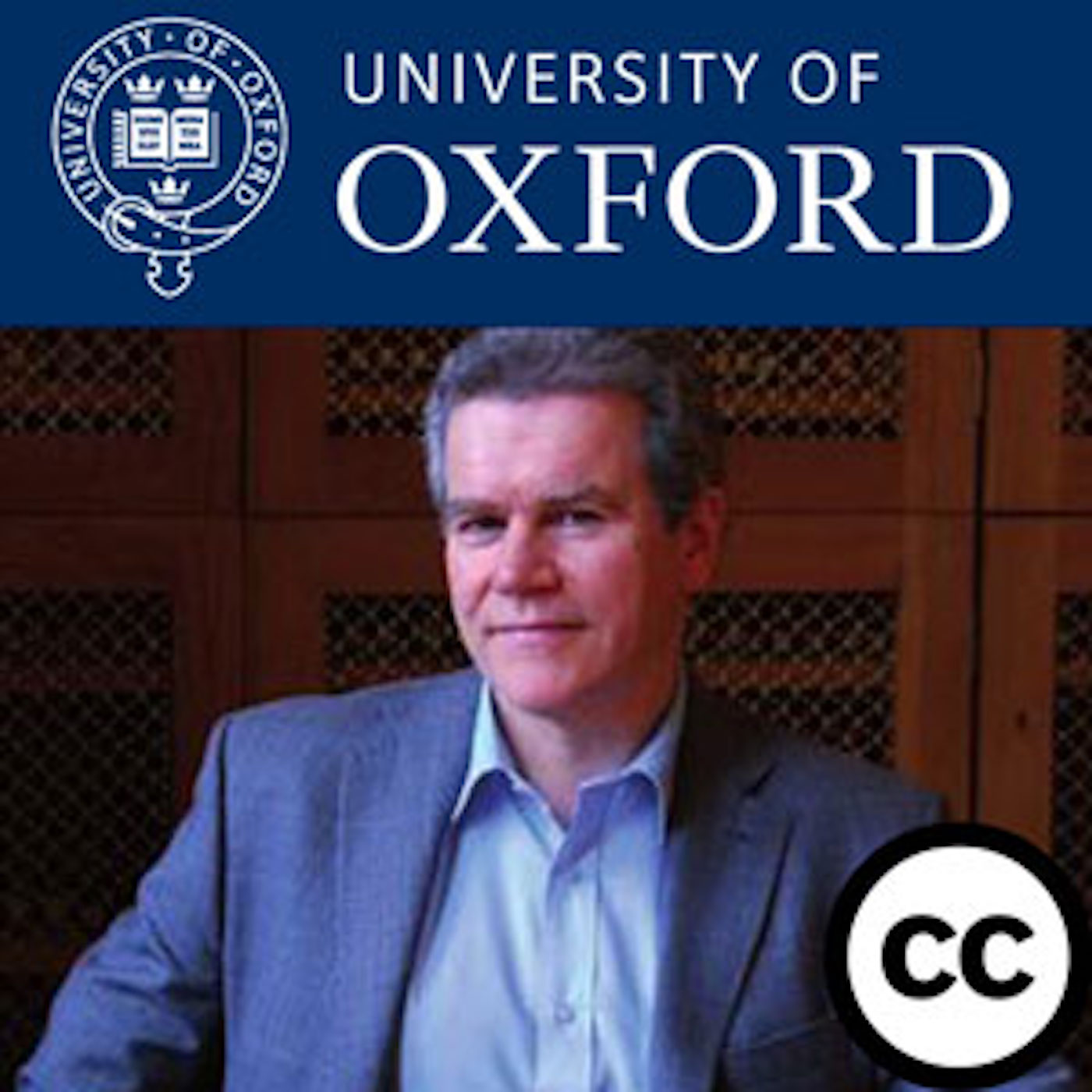

General Philosophy
Oxford University
A series of lectures delivered by Peter Millican to first-year philosophy students at the University of Oxford. The lectures comprise of the 8-week General Philosophy course, delivered to first year undergraduates. These lectures aim to provide a thorough introduction to many philosophical topics and to get students and others interested in thinking about key areas of philosophy. Taking a chronological view of the history of philosophy, each lecture is split into 3 or 4 sections which outline a particular philosophical problem and how different philosophers have attempted to resolve the issue. Individuals interested in the 'big' questions about life such as how we perceive the world, who we are in the world and whether we are free to act will find this series informative, comprehensive and accessible.
Episodes
Mentioned books

Apr 8, 2010 • 10min
3.2 Responses to Hume's Famous Argument
Explore the intriguing skepticism of David Hume regarding induction. The discussion dives into the philosophical debates sparked by Hume's argument, focusing on how assumptions of uniformity shape our predictions. Various responses to his skepticism are examined, highlighting the ongoing tension in human reasoning. This captivating journey through philosophy challenges listeners to reconsider how we justify our beliefs and predictions in a seemingly unpredictable world.

Apr 8, 2010 • 13min
3.1 Hume's Argument Concerning Induction
Dive into the intriguing world of induction as Hume's philosophy unpacks the challenge of justifying knowledge without experience. Discover his key distinctions between relations of ideas and matters of fact. Explore the necessity of experience for synthetic knowledge and question the reliability of inductive reasoning. The nuances of causality and predictive logic are put under the microscope, revealing the complexities of understanding our world through Hume's lens.

Apr 8, 2010 • 17min
2.7 Overview: Kant and Modern Science
The transition from medieval to modern philosophy showcases a clash between religious beliefs and emerging secular thought. Kant challenges Hume's views on human nature and knowledge acquisition. The conversation shifts to the mind-bending implications of quantum mechanics, exploring wave-particle duality and the perplexing effects of measurement on light. These discussions provoke deeper questions about free will and personal identity in the context of scientific advancements.

Mar 16, 2010 • 13min
2.6 David Hume
Dive into the fascinating world of David Hume, the 18th-century philosopher known as 'The Great Infidel.' Discover his impactful ideas on the interplay of philosophy and science, and how he reshaped our thinking about causation and induction through habitual reasoning. Explore his arguments on free will and morality, highlighting the importance of empathy in ethical frameworks. Hume's insights challenge conventional rationality, offering a refreshing perspective on how we understand the universe.

Mar 16, 2010 • 9min
2.5 Nicolas Malebranche and George Berkeley
Delve into the intriguing philosophies of Malebranche, who emphasizes divine intervention as the true source of causation. Discover how his ideas shaped Berkeley's radical view that reality exists only through perception. The discussion contrasts Berkeley's immaterialism with Locke's materialism, revealing a universe constructed from divine perceptions rather than physical objects. It’s a fascinating exploration of how philosophical thought bridges faith and reason.

Mar 16, 2010 • 12min
2.4 John Locke
Delve into the mind of John Locke, England's first Empiricist. Discover how he believed knowledge is rooted in our sensory experiences. Explore the contrasts between his views and rationalism, while learning about substance and personal identity. Uncover the intriguing limits of human understanding and how they shape our perceptions.

Mar 16, 2010 • 14min
2.3 Robert Boyle and Isaac Newton
Part 2.3. An introduction to Robert Boyle's theory of corpuscularianism and Isaac Newton's ideas on mathematics and the universe.

4 snips
Mar 16, 2010 • 12min
2.2 Thomas Hobbes: The Monster of Malmesbury
Delve into the mind of Thomas Hobbes, known as 'The Monster of Malmesbury.' Explore his mechanistic view of the universe and the deep-rooted determinism that shapes his philosophy. Discover his stark, sometimes bleak perspective on human nature, famously declaring life as 'solitary, poor, nasty, brutish and short.' The discussion highlights his political theories in 'Leviathan,' emphasizing the need for an absolute sovereign. Hobbes' controversial ideas left an indelible mark on 17th-century political thought.

Mar 16, 2010 • 6min
2.1 Recap of General Philosophy Lecture 1
Part 2.1. A brief recap on the first lecture describing how Aristotle's view of the universe, dominant throughout the middle ages in Europe, came to be gradually phased out by a modern, mechanistic view of the universe.

Feb 19, 2010 • 11min
1.4 From Galileo to Descartes
Discover the groundbreaking clash between Galileo and Aristotle over motion, where inertia takes center stage. Delve into Descartes' quest for a firm philosophical foundation that reshaped knowledge. Explore his mechanistic view of the universe and insights on God and existence. Uncover the fascinating concepts of mind-body dualism and how these ideas set the stage for modern science.


